We need your help!
Projects in Zambia
Helping the most vulnerable
Ubumi works with health, education and reintegration with a rights perspective
The Ubumi Prisons Initiative works with health, education, and reintegration from a rights-based perspective. Ubumi supports the most vulnerable people in Zambia’s prisons, targeting children, youth, pregnant women, mothers, people with mental illness, and those who are severely physically ill.
The prisons face severe challenges, including extreme overcrowding, lack of hygiene, and poor nutrition. In some prisons, overcrowding reaches 600% of capacity, leading to significant health issues. Tuberculosis, malnutrition, and mental health disorders such as depression, anxiety, and stress are widespread. HIV/AIDS is also a serious problem, with prevalence rates exceeding the national average of 12%. About 25% of inmates are awaiting trial – a process that can take up to 10 years for those without money or influence to advance their case. Poverty-related crimes make up 80% of crime in Zambia, meaning most inmates are imprisoned for minor offences.
Food security is low, and the nutritional quality of the food is poor. We work to improve food security for the most vulnerable through initiatives like vegetable gardens. The availability of quality education in prisons is also limited. Therefore, we support a range of educational initiatives, such as libraries and IT workshops, while also building capacity among both inmates and staff in areas like health.
We work on reintegration through programmes both within and outside the prisons. Former inmates, along with vulnerable members of the community, participate in training and internship programmes, with a focus on agricultural skills.
Ubumi collaborates closely with volunteer inmates and prison staff. We find ways for inmates to take responsibility for the projects themselves. Our approach is to identify and use the resources already available within the prisons, both physical and human. Inmates actively participate in the projects rather than being passive recipients. Every day volunteers make a significant effort to improve conditions for other inmates, children, and youth.

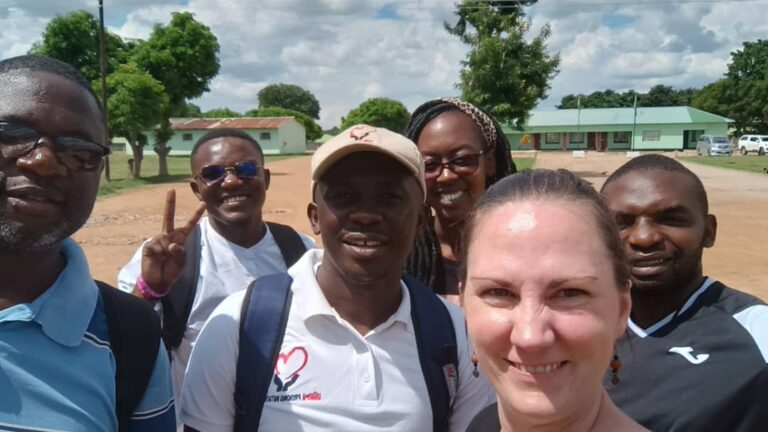
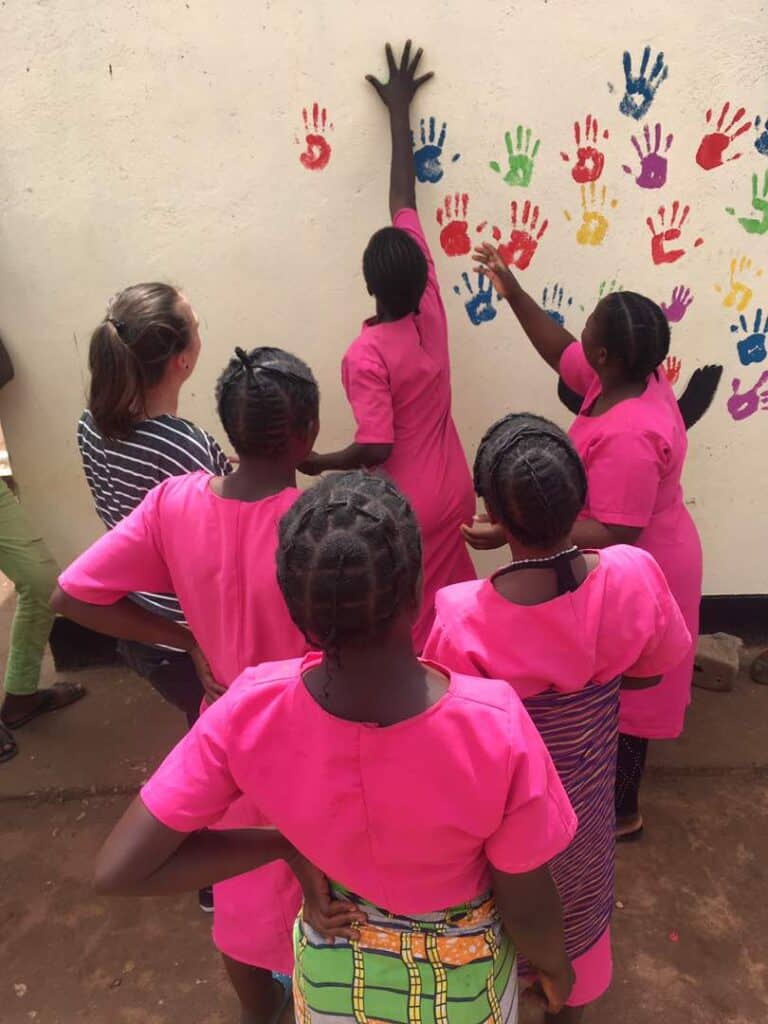
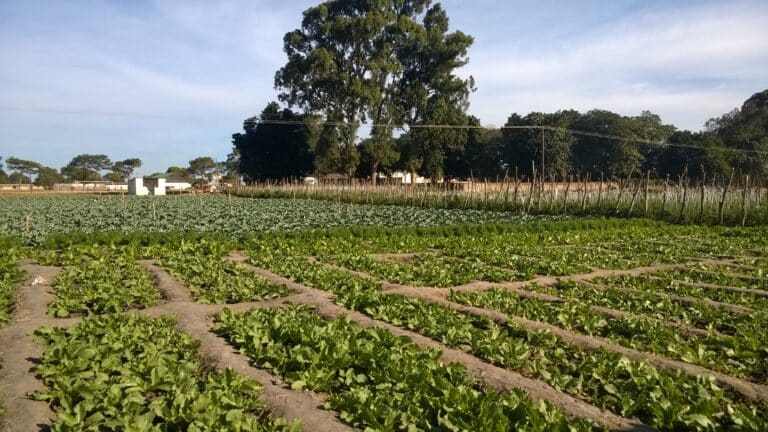

Rights, Health & Mental Health,
Advocacy, and Partnerships
Advocating for inmate rights, especially regarding health and mental health, is central to Ubumi’s work. We work diplomatically and persistently to change structures that lead to rights violations in prisons. Our approach is to build a ‘positive but constructively critical partnership’ with authorities, which allows us to influence strategic plans as well as daily operations and emergency efforts. We also partner with many local organisations that share our values to amplify our advocacy efforts, enhance synergies, and increase efficiency across Zambia.
Ubumi participates in the Prisons Health Advisory Committee, a nationwide coordination body led by Zambia’s Prison Service. This committee meets monthly (in principle) to discuss cases, share experiences, and improve services. Ubumi contributes to the committee’s annual work plan and actively participates in annual conferences aimed at improving collaboration and transparency across various institutions, including public authorities, partner organisations, and Zambia’s prison service.
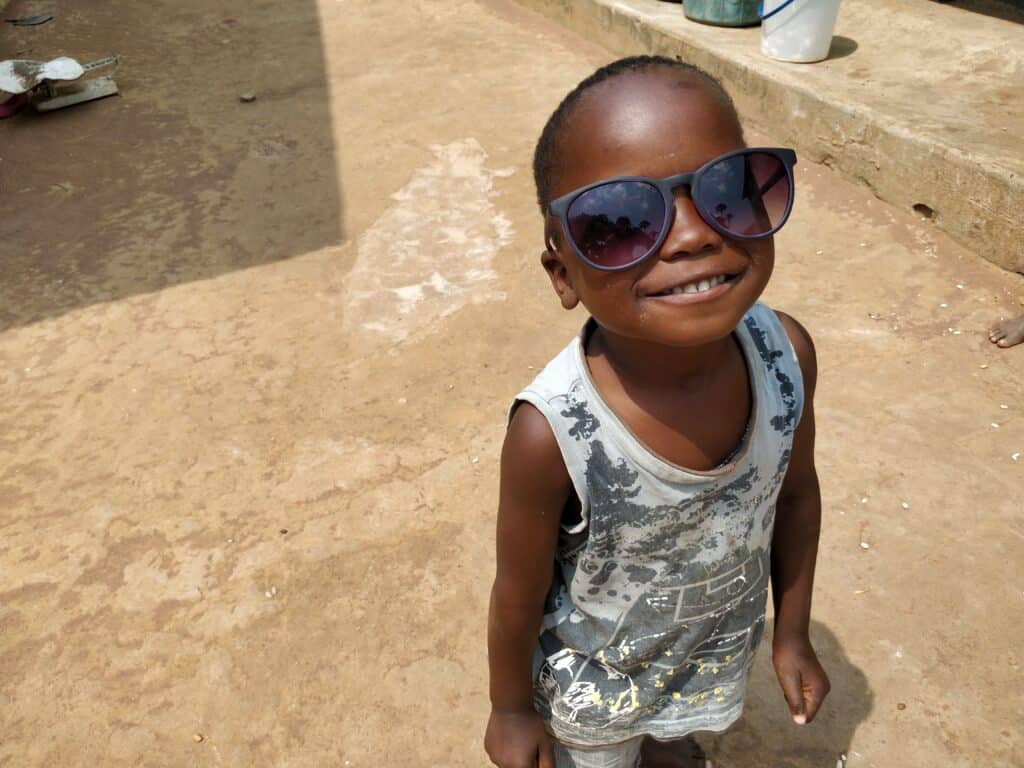
Support for children
The children's project
In some prisons children up to the age of four live with their incarcerated mothers and urgently need assistance. These children suffer as prisons do not cater to their specific needs, and their mothers often have to share their already insufficient rations with their children. The prison environment lacks opportunities for play and normal development.
Ubumi’s project addresses this by providing children with extra food, clothing, soap, and other basic necessities. We have established playhouses and play areas for children, allowing them to play and learn while their mothers also gain access to educational opportunities.
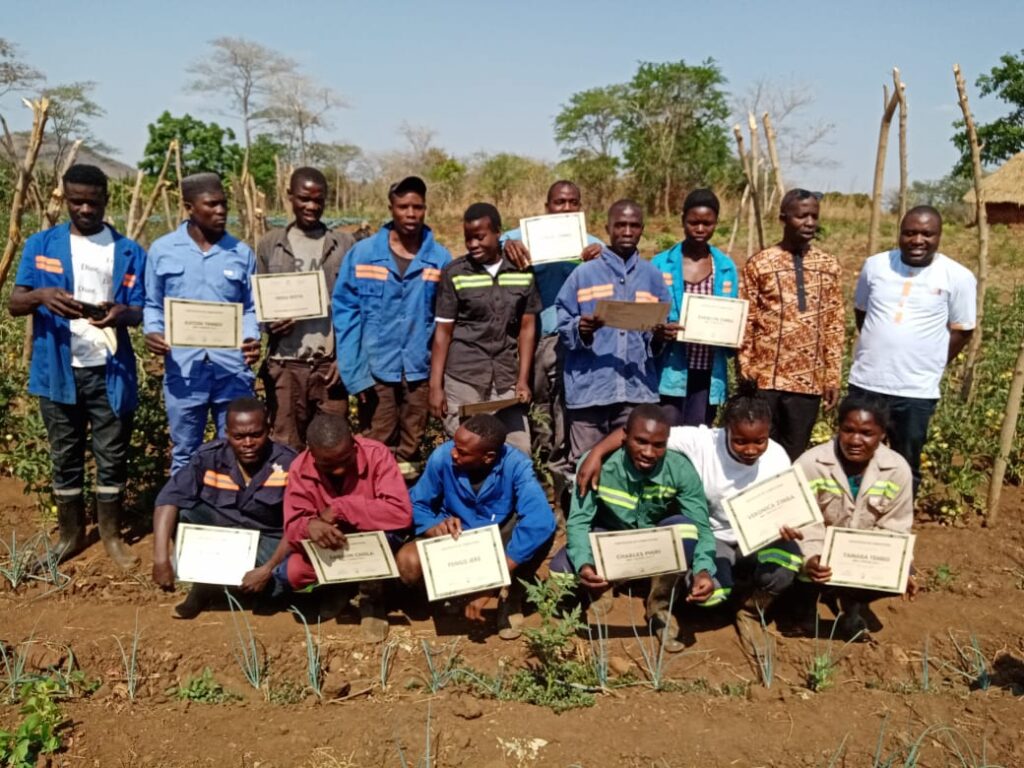
Nutrition and Routine
For Youth
Ubumi’s youth project in Zambian prisons focuses on nutrition and establishing constructive daily routines. Young inmates, aged 12–18 and sometimes younger, may be awaiting trial, sentencing, or transfer to juvenile facilities. We work with prison staff to ensure there are positive and responsible adults to support the youth. Nutrition supplements and educational or sports activities are provided to alleviate the stress young inmates face.
Through collaboration with a Danish football coach, Buster Kirchner, who worked with Ubumi in Zambia from 2017 to 2018, we have developed a foundational plan for sports activities in prisons. This initiative has continued through the dedication of inmate and staff volunteers.
Nutrition and Routine
For the Critically Ill
Prisons are high-risk environments for disease outbreaks, including diarrhoea, tuberculosis, HIV/AIDS, and skin diseases. Malnutrition is a leading cause of death, as it prevents AIDS patients from effectively absorbing their medication.
To tackle this, Ubumi and its partners implement the Ubumi Model, which includes:
- Protection from infectious diseases through access to clean drinking water and improved hygiene.
- Care for the critically ill provided by trained inmate volunteers under the supervision of prison health staff.
- Nutrition improvements through kitchen gardens, poultry, and fish pond projects.
- Distribution of essential supplies.
The project for critically ill inmates consists of a team of approximately 15 volunteer caregivers among the inmates, 1-2 volunteer cooks, 2-4 volunteers managing chlorine containers, and 4-5 volunteer gardeners in each prison. The caregivers are trained in hygiene, care, nutrition, and the most common illnesses found in prisons. The team is led by an inmate, titled the Ubumi Inmate Coordinator, who works closely with the prison nurses to provide the best possible care.
The volunteer caregivers are responsible for taking care of the patients. They ensure that the patients take their medication, wash their clothes, bathe them, and feed them. Ubumi provides supplies such as protein and soap. We have developed a plan to stop diarrhea outbreaks before they result in loss of life. The project has delivered remarkable results, particularly in improved nutrition and a significant reduction in deaths—by up to 90% in 2021.


“The Ubumi Model won the Zenith Global Health Award in 2022 for going beyond the call of duty and delivering quality healthcare efforts to particularly vulnerable communities.”

Kitchen Gardens and
Food Security
When feasible, Ubumi establishes kitchen gardens in prisons where inmate volunteers grow vegetables such as carrots, onions, cabbage, and tomatoes. These vegetables improve the diet of the most vulnerable inmates, including mothers, pregnant women, children, youth, and the critically ill. On average, these gardens feed 50-75 people with fresh produce three times a week.
Vegetables mean everything in an environment where meals consist of a cup of rice for breakfast and a type of maize porridge with canned beans for lunch/dinner. The inmates only receive food twice a day. Vegetables ensure that their diet becomes slightly healthier. Additionally, Ubumi—supported in part by member contributions—purchases food (especially protein sources), hygiene materials, and medicine. Currently, more than 100 volunteers are working in Zambia’s prisons to assist the most vulnerable inmates. These include those working in the gardens, others acting as caregivers for children aged 0-4 who are in prison with their mothers, and those preparing meals for young inmates aged 10-19. There are also volunteers providing nursing care and cleaning services to benefit the critically ill. The gardens are a significant part of our projects’ success. For example, from 2012 to 2019, we succeeded in reducing the number of deaths by 90%.

IT knowledge is a school subject in Zambia
Education and Reintegration
IT skills are part of the school curriculum in Zambia. An inmate established an IT room in Kabwe’s maximum-security prison before Ubumi began its work there. Since 2012, Ubumi has supported this facility, enabling inmates to learn practical computer skills. Ubumi now operates four IT rooms across various prisons and has also established or updated libraries in 12 prisons, housing thousands of books in both fiction and non-fiction.
Education supports inmates’ reintegration into society upon release, equipping them with skills that help prevent reoffending due to poverty-related issues.
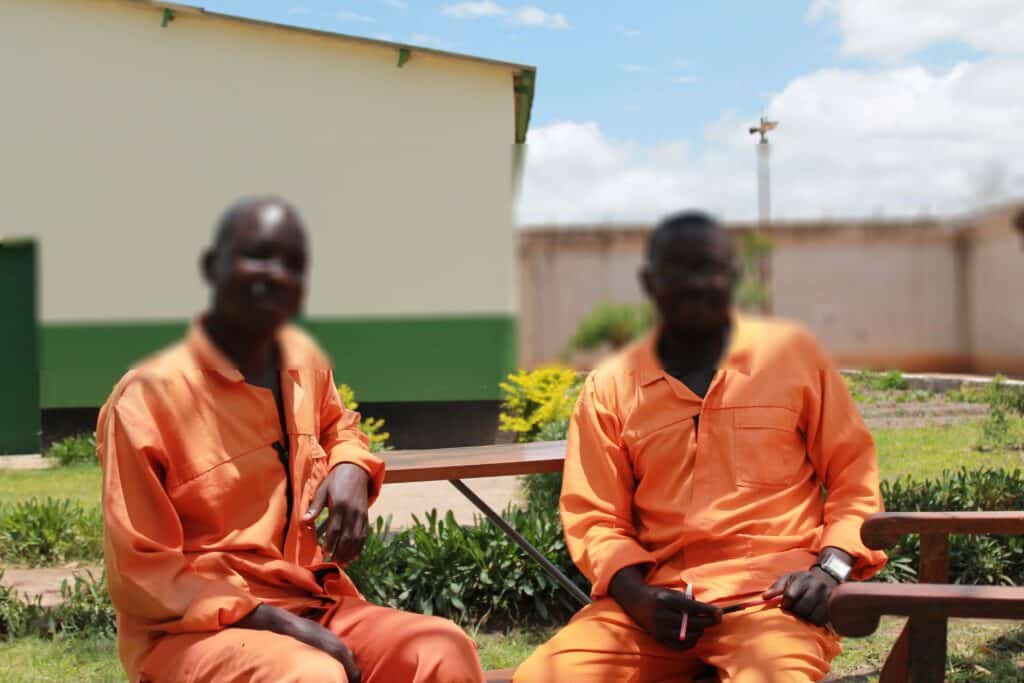
Imprisonment is mentally challenging
Mental Health and Empowerment
Incarceration is mentally taxing, and inmates are far from passive recipients of external aid.
They actively take responsibility for others in various ways. For example, inmates help care for critically ill inmates, run educational activities, and take on roles in projects like gardening, cooking, and caregiving.
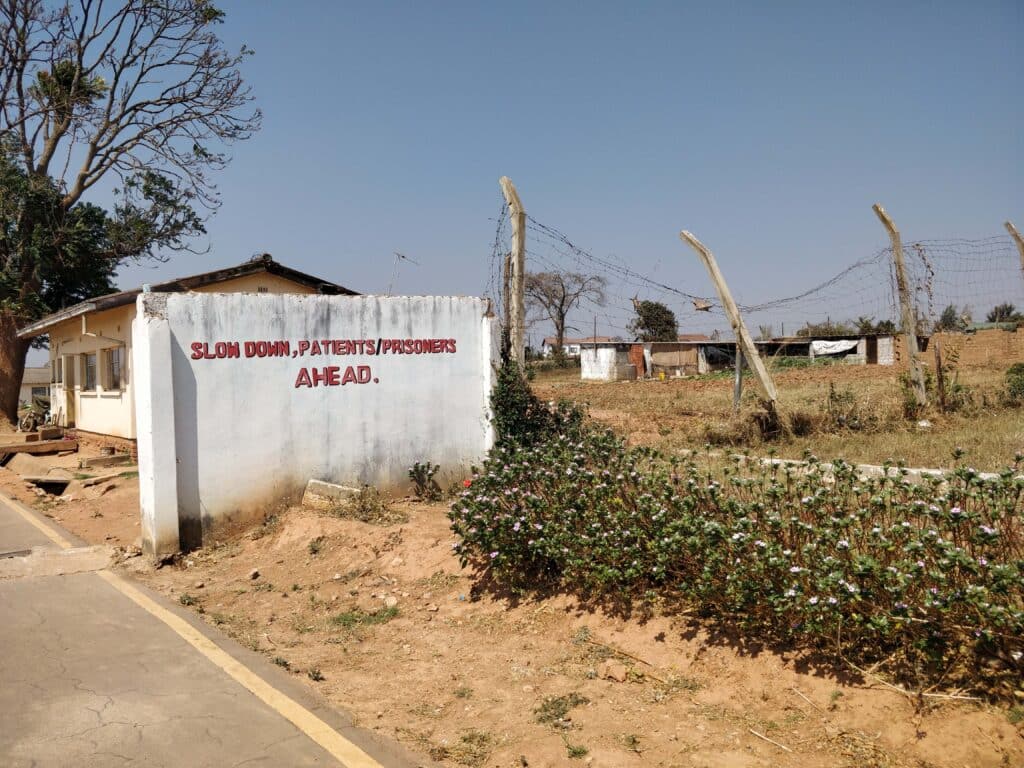
Mental illness is overrepresented
Psychological Vulnerability and Mental Health
People with mental illnesses are overrepresented in crime statistics worldwide, and in poorer countries, inadequate psychiatric care often exacerbates this vulnerability. Incarceration presents a high risk for developing mental health issues due to factors like overcrowding, violence, lack of meaningful activities, isolation from family, and uncertainty.
Ubumi raises awareness about mental health among decision-makers, provides capacity building for civil society and authorities, and trains inmates and health staff, while also directly treating mental health issues through mentorships, advice, and self-help groups in 10 prisons.This project has been highly successful, showing great potential for change in an area that urgently needs improvement.
Based on fundamental principles
The Ubumi Model
- The Ubumi Model is a holistic and strategic approach to problem-solving, carefully tailored to fit the local context.
- Inmate Empowerment: Inmates take responsibility for various projects, fostering empowerment by leveraging their skills and resources
- Volunteerism: Inmates help one another, creating a supportive community within the prison
- Capacity Building: Training for both inmates and prison staff in key areas such as food production, health, and more
- Government Involvement: Engaging and gaining support from authorities and prison staff through education, accountability, commitment, and further capacity-building initiatives
- Self-help Initiatives: Encouraging self-sustaining projects, including food production
- Strong Control Systems and Good Local Leadership: Emphasis on robust management and accountability systems at the local level
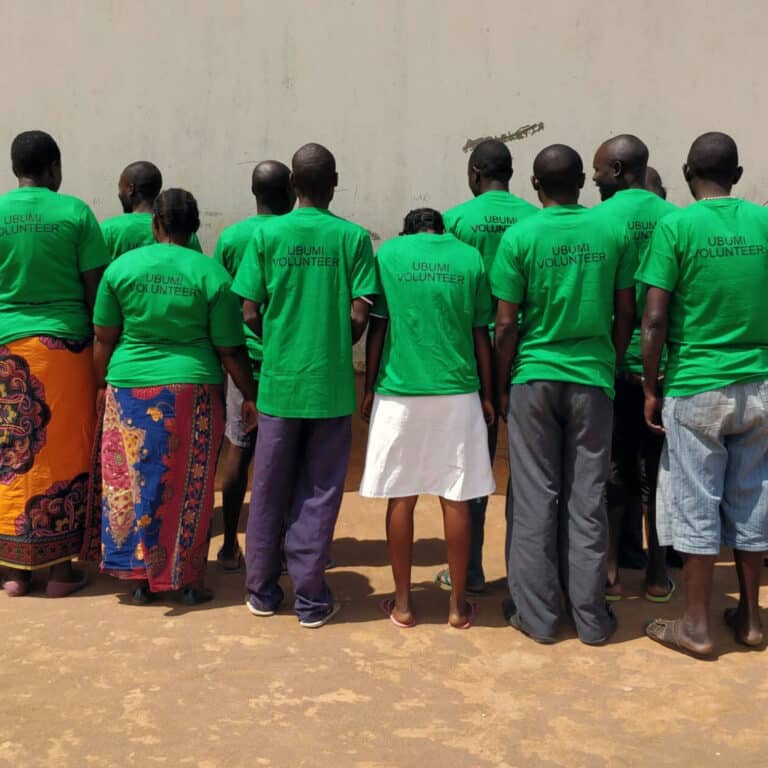
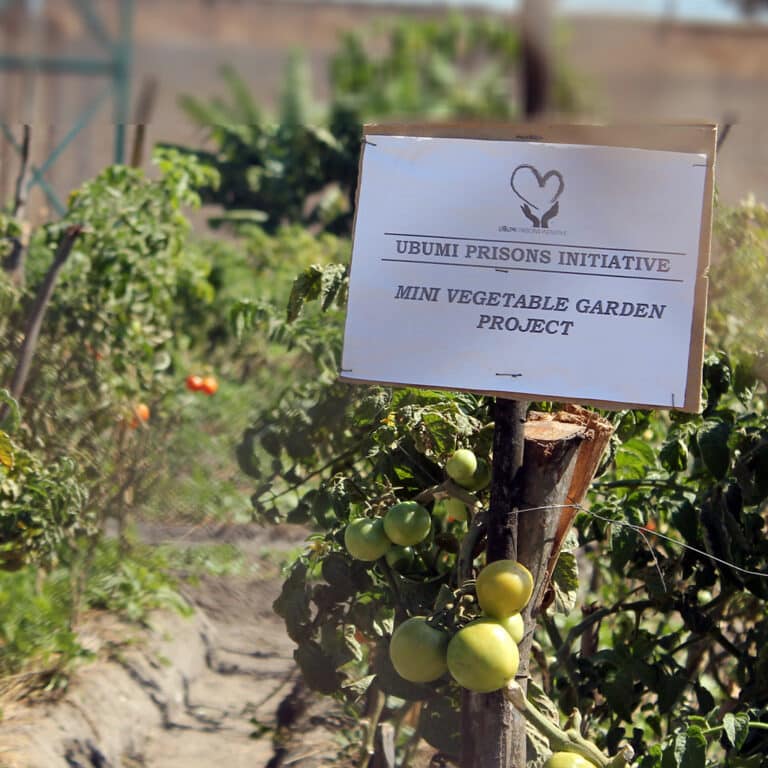
The advantages of the Ubumi approach include:
- A holistic and context-sensitive strategy for addressing complex challenges within prisons
- Inmate empowerment through responsibility, allowing prisoners to contribute meaningfully to their environment
- Volunteerism that fosters a sense of community and mutual support
- Capacity building for both inmates and staff in essential areas like food security and healthcare
- Involvement and backing from authorities and prison staff, strengthened through education, empowerment, and accountability
- Self-sufficiency initiatives that build resilience, particularly through sustainable food production projects
- Strong oversight and local leadership, ensuring effectiveness and sustainability